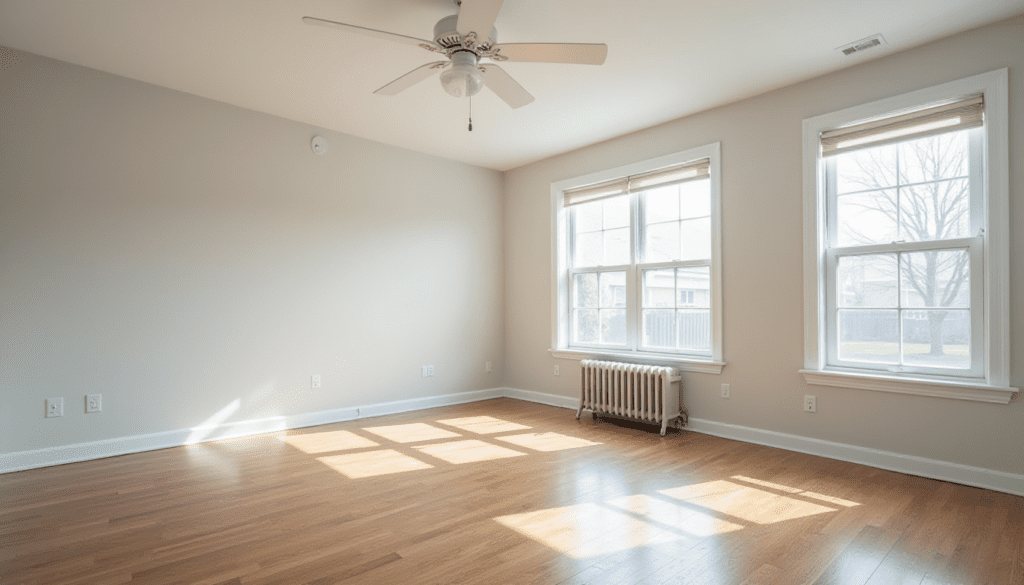If you’re a landlord or tenant in Caldwell, New Jersey and the term **3-Day Notice to Pay or Quit** has come up, you’re not alone in wondering exactly how it works locally. In this article we’ll break down how the notice works, what the law says in New Jersey, the practical context in Caldwell, and what both landlords and tenants should actually do when faced with it. We’ll also give you actionable advice to avoid major pitfalls. Using plain language and grounded in NJ law, this guide aims to clarify what can feel like a complicated process.
1. Why this topic matters for Caldwell landlords & tenants
For landlords in Caldwell, a non-payment of rent situation can quickly become a major headache. On the tenant side, getting a 3-day notice (or hearing about one) evokes stress and questions: “Do I have to leave? How much time? What can I do?” Because rental matters in Caldwell (and New Jersey broadly) are governed by specialized rules and local codes, knowing how a 3-day notice fits in can help both sides act faster and smarter.
From a landlord perspective, properly serving the notice and following local procedures can save time, legal expense and reduce risk of voided filings. For tenants, knowing your rights when a notice arrives can make the difference between getting caught off guard and taking control of your next move. Ultimately, a clear understanding helps both parties avoid unintended consequences—or worse, an improper eviction filing.
2. What the phrase “3-Day Notice to Pay or Quit” typically means
The phrase “3-Day Notice to Pay or Quit” is commonly used to describe a landlord’s notice to a tenant to either pay overdue rent (or comply with some demanded tenancy condition) within three days, or vacate the property. In many states and in landlord-tenant parlance the notice is the first step before an eviction filing.
In New Jersey, however, the situation is a little more nuanced. While there *is* a “three-day” period in some circumstances, not every “nonpayment of rent” case automatically receives a 3-day notice. For example: if the reason for the eviction relates to “disorderly conduct,” “illegal activity,” or willful damage, then a literal 3-day notice (an unconditional notice to quit) is required. :contentReference[oaicite:1]{index=1}
In contrast, for nonpayment of rent, landlords may proceed without giving a formal 3-day notice and may file the eviction complaint immediately in the special civil part, provided they have not habitually accepted late payments. :contentReference[oaicite:2]{index=2}
Therefore, although the phrase is used in practice, you’ll want to understand exactly which legal scenario applies in Caldwell because the consequences will vary.
3. How eviction law works in New Jersey (overview)
3.1 The role of the New Jersey Courts’ Landlord-Tenant rules
The statewide rules defined by the New Jersey Courts govern how evictions proceed. One key rule: after a judgment for possession is entered in a nonpayment case, the tenant still has three business days to pay all rent and approved costs to avoid actual lockout. :contentReference[oaicite:4]{index=4}
From the official site: “Even after a judgment of possession is entered … the tenant has three business days to pay the rent and the approved costs to avoid eviction.” :contentReference[oaicite:5]{index=5}
The relevant statutes: for example N.J. S.A. 2A:42 10.16a sets out this “three-business-day” post-judgment payment window. :contentReference[oaicite:7]{index=7}
3.2 Difference between non-payment vs lease violation in NJ
In New Jersey, different grounds for termination of tenancy lead to different notice requirements. For non-payment of rent: if the landlord has not habitually accepted late payments, they may move directly to filing and do *not* necessarily have to serve a formal notice period. :contentReference[oaicite:8]{index=8}
For lease violations, disorderly conduct, illegal activity, damage to the premises: the law typically requires first a “Notice to Cease” and then, if needed, a “Notice to Quit” of at least three days. :contentReference[oaicite:9]{index=9}
The statute N.J. S.A. 2A:18 61.2 introduces the notice requirement: “The notice in each of the foregoing instances shall specify in detail the cause … and shall be served either personally … or by certified mail…” :contentReference[oaicite:11]{index=11}
4. Does New Jersey (and Caldwell) require a 3-day notice for nonpayment?
This is a key question: The short answer: Not always. In Caldwell NJ, as part of New Jersey law, for nonpayment of rent you do *not* necessarily need a “3-Day Notice to Pay or Quit” before filing the eviction action. The landlord may proceed to file the Verified Complaint in the Special Civil Part without serving a formal 3-day notice. :contentReference[oaicite:12]{index=12}
The “three-business-day” period that often causes confusion is *after* the judgment for possession is entered — giving the tenant a final opportunity to pay. It is not the same as a pre-eviction “3-Day Notice to Pay or Quit.” :contentReference[oaicite:13]{index=13}
However, if the landlord has habitually accepted late rent payments, then New Jersey law requires that the landlord must serve a 30-day notice to quit for a non-payment case before filing. :contentReference[oaicite:14]{index=14}
Thus, in most simple nonpayment cases (where late rent has not been habitually accepted), a “3-day notice” is not statutorily required before filing. But for lease violations, misconduct or illegal activity the 3-day unconditional notice may apply. Also keep in mind that local Caldwell rent control or housing ordinances may add additional steps — so landlords and tenants should review local regulations carefully.
5. Specifics for Caldwell, NJ — local considerations & rent-control context
While the legal framework discussed above applies across New Jersey, landlords and tenants in Caldwell must consider two additional local factors: (1) any local rental/tenant ordinances (such as a rent review or rent-control board) and (2) how local court practice in the county handles the special civil part filings.
For example, Caldwell falls within Essex County, and local filings for eviction (special civil part) will follow the county’s administrative procedures. Also if the property lies within a zone subject to rent review or has a municipality-administered rent board (such as a Caldwell Rent Review Board) then additional restrictions may apply to termination and notices.
From a practical viewpoint landlords in Caldwell should check whether the unit falls under rent control or local tenant-protection ordinances. Even where a 3-day notice is used, local practice might require extra steps such as delivering the notice in a manner consistent with the local municipality’s rules.
Tenants in Caldwell should also take note: if the landlord skips local required steps (for example, serving notice improperly or ignoring municipal tenant-protection statute), you may have defenses. Though state law provides the framework, local rules can impact timing, service method, and even additional tenant rights.
In Caldwell, if a landlord tries a “generic” 3-day notice template from another state or fails to include required specifics, a tenant may argue the notice was defective — subjecting the landlord to delays or even a dismissal. Always tailor the notice to NJ law (for instance referencing N.J.S.A. provisions) and serve correctly.
6. What a landlord must include in a valid notice to pay or quit
Even when a “3-Day Notice to Pay or Quit” is used in Caldwell NJ (for example, in cases of disorderly conduct or illegal use of premises), it must meet certain content standards to be considered valid. Under N.J.S.A. 2A:18-61.2, a landlord must specify the *cause* in detail, not just state “nonpayment of rent.” The notice should contain the following:
- Tenant name and property address – Ensure accuracy; errors may invalidate the notice.
- Exact amount of rent owed – Including breakdown by month or due date.
- Date of the notice and signature – Dated and signed by the landlord or authorized agent.
- Specific violation or reason – For nonpayment, cite the overdue rent; for conduct violations, describe behavior and date/time of occurrence.
- Timeframe for compliance – Usually three days for this type of notice, counted as calendar days unless stated otherwise.
- Consequence of inaction – Explain that failure to pay or vacate will lead to filing an eviction complaint in the Special Civil Part of Essex County.
Adding unnecessary threats or penalties can render a notice misleading or potentially unenforceable. Use factual, legal phrasing, and avoid emotional language. The goal is compliance, not intimidation.
7. Serving the notice – methods, timeline & documentation
Service of notice is a crucial step in the eviction process. In Caldwell NJ, and across the state, landlords must serve notices according to the requirements of N.J.S.A. 2A:18-61.2. Improper service can delay the eviction or result in dismissal. There are three legally acceptable methods:
- Personal delivery – Delivering the notice directly to the tenant in person.
- Certified mail, return receipt requested – Creates a record of delivery, often the safest legal option.
- Posting on the premises – Used only when other methods fail, and it’s combined with regular mailing.
Once the notice is served, landlords should document the date, method, and any acknowledgment of receipt. Courts in Essex County may request proof of proper service when the complaint is filed. Keeping a dated copy of the notice and mailing receipt (or affidavit of service) helps avoid complications later.
Landlords must also consider the Caldwell Rent Review Board if the property is under rent control. In those cases, additional copies or filings may be required to show compliance with local regulations before proceeding with eviction.
8. Tenant rights after receipt: paying the debt, contesting the notice
When tenants in Caldwell receive a 3-day notice, they still have several options and rights under New Jersey law. Contrary to common belief, receiving the notice doesn’t mean you have to pack up immediately. The notice is a formal warning, not an automatic eviction order.
Tenants can respond in the following ways:
- Pay the full rent amount – If the issue is nonpayment and payment is accepted by the landlord, the tenancy typically continues.
- Negotiate or request an installment plan – Many landlords are willing to arrange a payment plan to avoid court costs.
- Challenge the notice – If the notice was improperly served, inaccurate, or uses the wrong legal grounds, tenants can contest it when the landlord files for eviction.
- Seek help through mediation – In some cases, local organizations in Essex County offer landlord-tenant mediation to resolve disputes before court.
It’s important to know that even after a judgment for possession is entered, tenants in New Jersey have three business days to pay all rent and approved costs to avoid lockout (NJ Courts Landlord-Tenant Division). This three-day period post-judgment is often confused with the 3-day notice, but it’s actually a separate legal right that gives tenants a final chance to stay housed.
9. The eviction filing: when and how a landlord can proceed in Caldwell
After the notice period expires—or if the tenant fails to comply—the landlord may proceed to file a Verified Complaint for eviction in the Essex County Special Civil Part. This is done through the New Jersey Courts system.
The filing must include:
- A copy of the lease (if written)
- Proof of notice service (mail receipts or affidavits)
- Statement of amount owed and timeframe
- Any prior “Notice to Cease” (if applicable)
Once filed, the court issues a hearing date—usually within a few weeks. Both parties must appear in court, and the judge will determine whether the landlord has lawful grounds for possession. If judgment is entered for the landlord, the tenant has the statutory three business days to pay full rent and costs before a warrant of removal is issued.
Landlords in Caldwell are encouraged to check internal resources on proper procedures, such as the article Understanding the 3-Day Notice to Pay or Quit in Verona NJ, which outlines a similar process and shares compliance strategies.
10. Common mistakes landlords and tenants make with 3-day notices
Despite its seemingly simple premise, the 3-day notice process can be mishandled in several ways. Below are some of the most frequent and costly mistakes:
- Using an out-of-state template – Every state’s law differs. Using a “3-Day Notice” form from another jurisdiction (like California or Texas) may include invalid clauses and lead to dismissal in a New Jersey court.
- Failing to provide exact rent details – Courts require precise rent amounts owed, not general statements like “past-due rent.”
- Improper service of notice – Skipping certified mail or posting without documentation often results in rejected filings.
- Accepting partial payments after serving notice – Doing so may waive your right to continue eviction proceedings under NJ law.
- Ignoring local Caldwell ordinances – Overlooking the Caldwell Rent Review Board’s regulations can expose landlords to fines or denial of eviction approval.
- Tenants not communicating – Many tenants panic and avoid contact, missing a chance to resolve or clarify issues before court.
For both landlords and tenants, knowledge is the key to preventing errors. Staying informed about local rules, and referencing legitimate legal and property-management resources, will ensure the process runs smoothly.
11. Practical tips for landlords in Caldwell: best practices to reduce risk
Landlords in Caldwell can avoid most disputes and delays simply by approaching the process with structure, documentation, and fairness. Even though the law allows certain actions without a 3-day notice for nonpayment, following good-faith practices helps preserve credibility in court and tenant relationships.
Document everything: Keep records of every rent payment, communication, and notice sent. In Essex County courts, judges often review emails, text messages, or ledger summaries to verify claims. A simple organized record can make or break your case.
Use the right notice for the right situation: For nonpayment of rent, ensure you have not habitually accepted late payments before proceeding directly to eviction. If you have, issue a 30-day notice first. For disorderly conduct, property damage, or illegal use of premises, use a proper 3-day unconditional notice as per N.J.S.A. 2A:18-61.2.
Serve notices correctly: Use certified mail or personal delivery, and keep the receipt. Improper service is one of the most common reasons for dismissed eviction filings.
Stay professional: Avoid emotional communication. Judges in landlord-tenant court expect landlords to act as business professionals, not adversaries.
Check local rent control rules: Always verify whether your property is under the oversight of the Caldwell Rent Review Board. If so, follow their procedures before any eviction or rent increase action.
Consult property management experts: Partnering with local specialists like RentShield Property Management can help ensure compliance, streamline communication, and maintain long-term tenant stability.
12. Practical advice for tenants in Caldwell: what to do if you get one
For tenants, receiving a 3-Day Notice to Pay or Quit is stressful, but it’s not the end of the road. The key is to act quickly, document communication, and understand your rights under New Jersey law.
Step 1: Confirm accuracy — Check if the notice correctly lists your name, address, rent owed, and the reason for notice. Errors may make the notice invalid.
Step 2: Communicate immediately — Contact your landlord as soon as possible. Many issues resolve through open dialogue before reaching court. Offer payment arrangements if possible.
Step 3: Seek legal or mediation help — Tenants in Caldwell can access free or low-cost legal aid through Essex County programs or statewide services listed on NJ Courts’ Self-Help Portal. Mediation may help avoid a court record.
Step 4: Pay within the cure period — Even after judgment, tenants have three business days to pay full rent and court-approved costs to stop eviction. Make payments via verifiable methods (money order, certified check).
Step 5: Keep receipts and written proof — Always get a signed receipt for any rent paid or agreement reached.
Tenants should also check if their building falls under local rent control, as this can provide additional protection against eviction or excessive rent increases.
13. Conclusion – summarizing key takeaways & next steps
The concept of a “3-Day Notice to Pay or Quit” in Caldwell NJ can be confusing because the phrase mixes state eviction law with common practice. In most nonpayment cases, landlords don’t legally need to issue this exact notice before filing; however, they must follow detailed procedures under New Jersey law to ensure compliance and fairness. Understanding how these rules work protects both sides.
For landlords: always use the correct notice, verify service methods, and respect local rent control laws. For tenants: act quickly, verify details, and use your legal right to cure or challenge improper notices. Both parties benefit from transparency, documentation, and knowing their rights under state and local law.
If you’re a property owner or tenant in Caldwell dealing with a rent payment dispute or notice, staying informed is your best protection. Working with local property management professionals ensures compliance and smooth resolution of conflicts before they escalate into eviction proceedings.
14. FAQ
What is a “3-Day Notice to Pay or Quit” in Caldwell NJ?
It’s a written notice from a landlord demanding payment of overdue rent or requiring a tenant to vacate within three days. In New Jersey, it primarily applies to severe lease breaches such as illegal activity or property damage — not necessarily ordinary rent nonpayment.
Does New Jersey require a 3-day notice before filing eviction for nonpayment?
No. In most nonpayment cases, landlords can file immediately without a 3-day notice, unless they’ve habitually accepted late rent.
What must a landlord include in a 3-day notice?
The cause for eviction, the amount owed, property details, date, and signature. Notices must also specify the timeframe and consequence of inaction.
What are tenant rights after receiving the notice?
Tenants can pay the rent, negotiate an agreement, or contest the notice in court. Even after a judgment, tenants have three business days to pay full rent and costs to avoid eviction.
Where can landlords and tenants in Caldwell get reliable information?
Official guidance is available from the New Jersey Courts Landlord-Tenant Division and local Caldwell Rent Review Board. You can also review similar guides at RentShield Property Management’s Verona NJ article.
15. What landlords and tenants should do next
For landlords: If you’re unsure how to handle nonpayment or notice procedures, contact a local property management company like RentShield Property Management for compliant templates and expert guidance on Caldwell regulations.
For tenants: Don’t ignore the notice. Review your lease, gather documentation, and reach out to your landlord or a legal aid office promptly. Acting early helps prevent an eviction filing on your record.
Both parties should always stay proactive, informed, and aligned with New Jersey’s landlord-tenant statutes to maintain lawful and cooperative rental relationships.
16. Closing insights
Ultimately, a “3-Day Notice to Pay or Quit” is not a one-size-fits-all document. In Caldwell NJ, success for both landlords and tenants depends on understanding how this notice fits within New Jersey’s broader eviction law. Compliance, clarity, and good communication protect everyone involved — and prevent small rental issues from turning into full legal disputes.
If you need personalized help managing properties, serving notices, or resolving tenant disputes in Caldwell, visit RentShield Property Management today for expert local support and resources tailored to New Jersey landlords and tenants.






